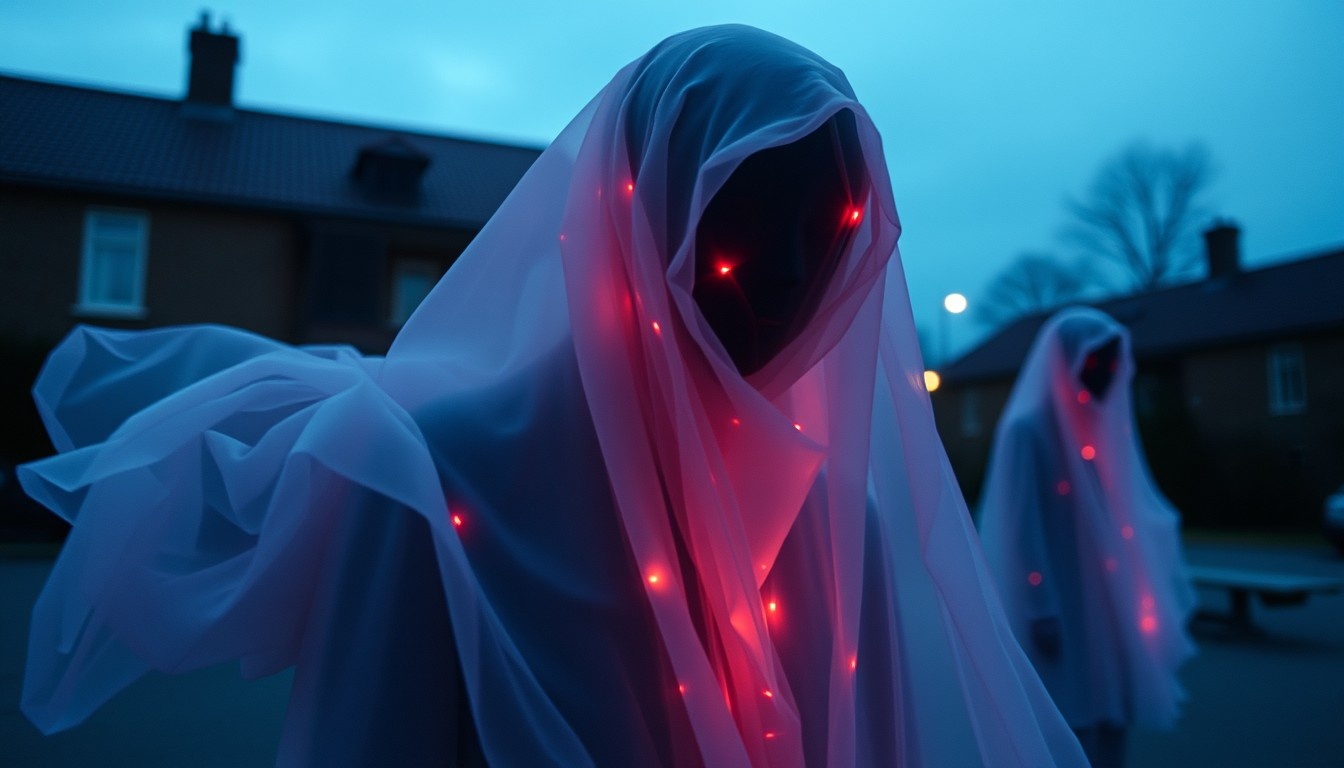Holy ghostbusters, Batman! We’re about to dive into the spooky world of digital disappearing acts. Buckle up, because this ride through the land of read receipts and radio silence is going to be wilder than your ex’s excuses for not texting back.
By the time we’re done here, you’ll be a certified ghost whisperer. Well, maybe not certified, but you’ll definitely have some killer insights into why people pull vanishing acts faster than Houdini on Red Bull.
Look, we’ve all been there. One minute you’re having a great convo with that cutie from Tinder, and the next – POOF! – they’ve disappeared like my motivation on a Monday morning. It’s enough to make you want to throw your phone into the nearest body of water, right?
Well, put down that phone and step away from the lake, my friend. As someone who’s been ghosted more times than I care to admit (seriously, I should start a support group), I’ve got some juicy tidbits to share about this oh-so-frustrating phenomenon.
I’ve picked the brains of psychologists, dating experts, and even a few reformed ghosters (they exist, I swear!) to bring you the lowdown on why people ghost, how to deal with it, and – plot twist – whether it’s ever okay to do it yourself.
From the classic “Sorry, I was in the shower for three days” excuse to the more creative “My phone got eaten by a bear” story, we’ll cover it all. And don’t worry, there’s no judgment here – we’re all just trying to navigate this crazy digital world without losing our minds (or our dignity).
So, are you ready to become a ghost-busting, communication-mastering superhero? Let’s do this!
The Ghostly Origins: Where Did This Trend Come From?
Alright, gather ’round the digital campfire, kiddos. It’s time for a spooky story about the birth of ghosting.
Once upon a time, in a land before smartphones (I know, terrifying), people actually had to CALL each other to break things off. Can you imagine? The horror!
But then, like a knight in shining armor (or a villain in a black hat, depending on your perspective), technology swooped in and made it easier than ever to avoid awkward conversations.
Suddenly, with the click of a button, you could make someone disappear from your life faster than you can say “It’s not you, it’s me.”
The Perfect Storm of Avoidance
Now, I’m not saying technology is the sole culprit here. It’s more like it created the perfect storm for our avoidant tendencies to thrive.
Think about it: We’ve got social media making us feel like we’ve got a buffet of options at our fingertips.
We’ve got dating apps that turn finding a potential partner into a game of human Candy Crush.
And we’ve got a culture that’s increasingly prioritizing convenience over, well, basic human decency.
It’s like we’ve all become commitment-phobic toddlers with the attention span of a goldfish on espresso.
The Rise of the Digital Coward
Let’s be real for a sec: ghosting is basically the digital equivalent of hiding under your bed when your mom calls you for dinner.
It’s avoidance at its finest (or worst, depending on how you look at it).
But here’s the kicker: it’s not just romantic relationships that are falling victim to the ghost epidemic.
Oh no, my friends. People are ghosting their friends, their jobs, even their therapists! (Seriously, who ghosts their therapist? That’s some next-level avoidance right there.)
The Anatomy of a Ghost: Why Do People Do It?
Alright, it’s time to put on our detective hats and dive into the twisted psyche of a ghoster. What makes them tick? Or, more accurately, what makes them stop ticking?
The Fear Factor
First up on our list of ghostly motivations: good old-fashioned FEAR.
Fear of confrontation, fear of hurting someone’s feelings, fear of commitment, fear of… well, you name it.
Some people would rather perform their own root canal than have an uncomfortable conversation.
For these folks, ghosting is like a get-out-of-awkward-free card. Except, you know, it’s not actually free because it comes with a hefty side of guilt and bad karma.
The Convenience Conundrum
Let’s face it: ghosting is EASY. It’s the communication equivalent of ordering takeout instead of cooking a five-course meal.
In our fast-paced, instant-gratification world, some people just can’t be bothered to craft a thoughtful “It’s not working out” text.
Why spend 5 minutes composing a message when you can spend those 5 minutes swiping right on Tinder, right? (Wrong, but we’ll get to that later.)
The “Maybe They’ll Get the Hint” Delusion
Ah, the classic passive-aggressive approach. Some ghosters genuinely believe that if they ignore someone long enough, that person will magically understand that things are over.
Newsflash, ghosters: WE’RE NOT MIND READERS. Your silence isn’t sending a clear message; it’s just confusing the heck out of us.
The Ghosting Ghosters
Plot twist: some people ghost because they’ve BEEN ghosted. It’s like a vicious cycle of digital disappearances.
They figure, “Well, if everyone else is doing it, why shouldn’t I?” This, my friends, is how we end up in a world where everyone’s ghosting each other and no one’s actually communicating.
The Ghost-ee’s Guide: How to Deal When You’ve Been Ghosted
Okay, so you’ve been ghosted. Welcome to the club! We meet on Tuesdays and have t-shirts. (Just kidding, but maybe we should?)
Here’s your survival guide for navigating the ghostly aftermath:
Step 1: Don’t Panic!
First things first: PUT DOWN THE PHONE. I know you want to send that 17th “Hey, you alive?” text, but trust me, it’s not going to help.
Take a deep breath. Remember, their ghosting says more about them than it does about you.
Step 2: Accept the Ghostly Reality
Look, I hate to break it to you, but if someone’s gone full Casper on you, they’re probably not coming back.
It’s time to accept that this person has chosen to exit your life in the most cowardly way possible.
Remember: their loss, not yours!
Step 3: Feel Your Feelings (But Don’t Dwell)
It’s okay to be upset. Ghosting SUCKS. Allow yourself to feel angry, hurt, or confused.
Have a good cry. Eat some ice cream. Watch sad movies. But don’t let these feelings become your new roommates.
Give them a day or two to visit, then show them the door.
Step 4: Channel Your Inner Detective (But Don’t Act On It)
It’s natural to want answers. Your brain might start spinning elaborate theories about what happened.
Maybe they got abducted by aliens? Maybe they’re secretly a spy and had to go deep undercover?
Have fun with these theories, but DON’T start stalking their social media or showing up at their favorite coffee shop.
That’s not cute; it’s creepy.
Step 5: Focus on You, Boo
Now’s the perfect time for some self-care. Take that yoga class you’ve been meaning to try.
Start that hobby you’ve been putting off. Spend time with friends who actually know how to use their phones.
Remember: the best revenge is living well (and posting about it on Instagram, obviously).
The Ethical Ghost: Is It Ever Okay to Ghost?
Alright, time for some real talk. Is ghosting EVER okay? It’s a controversial topic, but let’s dive in.
The General Rule: Don’t Do It
In most cases, ghosting is about as cool as wearing socks with sandals. It’s confusing, it’s hurtful, and it leaves people with a lot of unanswered questions.
If you’ve been on more than a couple of dates with someone, or if you’ve been friends for a while, you owe them at least a brief explanation before you vanish.
The Exceptions: When Ghosting Might Be Acceptable
Now, before you come at me with pitchforks, hear me out. There ARE some situations where ghosting might be the best (or only) option:
-
If the person is making you feel unsafe or uncomfortable.
-
If you’ve clearly communicated that you want to end things, but they’re not respecting your boundaries.
-
If it’s a super casual thing (like, you’ve exchanged two messages on a dating app) and neither of you is invested.
In these cases, your safety and well-being come first. Ghost away, my friend.
The Middle Ground: The Slow Fade
If you’re not quite ready to have a full-on “it’s not you, it’s me” conversation, but you also don’t want to ghost completely, there’s always the slow fade.
Gradually decrease your communication over time. It’s not perfect, but it’s better than vanishing into thin air.
Just be prepared: if they call you out on it, you might need to have that awkward conversation after all.
Ghost-Proofing Your Communication: How to Avoid Being Ghosted
Okay, I know what you’re thinking: “But Michele, how can I stop people from ghosting ME?” Well, my eager little ghost-buster, while we can’t control other people’s actions, we CAN improve our own communication skills.
Be Clear About Your Expectations
From the get-go, be upfront about what you’re looking for. Want a serious relationship? Say so.
Just looking for a casual fling? Make that clear. The more honest you are, the less likely you are to end up in a situation where someone feels the need to ghost.
Pay Attention to Red Flags
If someone’s giving you one-word answers, taking days to respond, or consistently canceling plans, they might be preparing to ghost.
Don’t ignore these signs! Address them directly or start preparing yourself for the possibility of a disappearing act.
Don’t Be a Clinger
Look, we’ve all been there. You meet someone amazing and suddenly you want to text them every five minutes.
But bombarding someone with messages is a surefire way to scare them off. Give them space to miss you!
Be Interesting (And Interested)
Ghosting often happens when the conversation gets stale. Keep things exciting!
Ask thoughtful questions, share interesting tidbits about your day, and for the love of all that is holy, don’t just respond with “lol” or “k.”
The Future of Ghosting: Where Do We Go From Here?
As we wrap up our ghostly journey, let’s gaze into our crystal ball and see what the future might hold for this spooky communication trend.
The Anti-Ghosting Movement
Believe it or not, there’s a growing backlash against ghosting. More and more people are recognizing the emotional toll it takes and are advocating for better communication.
Who knows? Maybe in a few years, ghosting will be as outdated as MySpace. (Remember MySpace? No? Just me? Okay then.)
Tech to the Rescue?
Some dating apps are starting to introduce features to discourage ghosting. Like gentle reminders to respond to messages or the ability to rate users on their communication skills.
It’s a start, but let’s be real: no app can force someone to be a decent human being.
The Return of Face-to-Face Communication
Call me crazy, but I predict a renaissance of good old-fashioned in-person communication.
As people get fed up with digital drama, we might see a return to actually talking to each other. You know, with our mouths. Revolutionary, I know.
Conclusion: Don’t Be a Ghost, Be a Human
Alright, ghost-busters, we’ve reached the end of our spooky journey through the world of digital disappearing acts.
Let’s recap, shall we?
Ghosting sucks. It’s confusing, it’s hurtful, and it’s turning us all into paranoid messes who jump every time our phones buzz.
But here’s the thing: we have the power to change this trend.
By being clear in our communication, respecting others’ feelings, and having the courage to have those awkward conversations, we can create a world with fewer ghosts and more actual human connections.
So the next time you’re tempted to pull a Houdini on someone, remember: don’t be a ghost, be a human.
Your karma (and your future dates) will thank you.
Now go forth and communicate like the amazing, non-spectral being you are!




